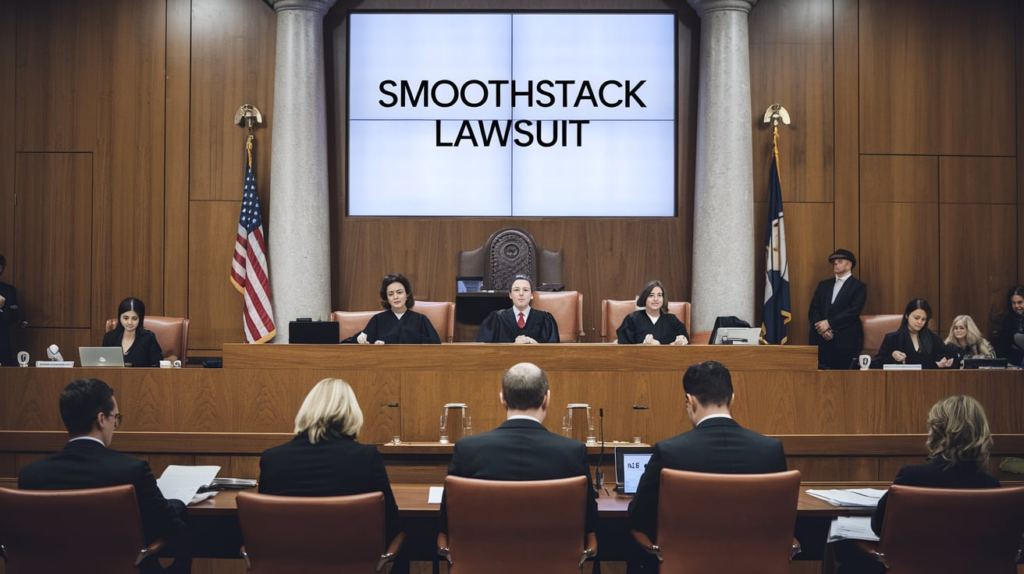The tech industry is no stranger to controversy, particularly regarding the treatment of employees, corporate practices, and the legal disputes that can arise as a result. Smoothstack, a company operating within the technology training and staffing sector, is at the centre of legal scrutiny. This article will explore the details of the Smoothstack lawsuit, the allegations involved, the potential implications for the tech industry, and the broader context of labour disputes.
Introduction to Smoothstack Lawsuit and Its Business Model
Smoothstack Lawsuit is a tech company that trains individuals for IT careers through intensive boot camps and then places them into job roles across various tech firms. The company primarily operates as a staffing agency, providing a pathway for aspiring tech professionals to gain the skills and experience they need to enter the workforce. Smoothstack’s model is built on recruiting candidates, training them through specialised programs, and contracting them to other companies.
This model has grown increasingly popular as demand for skilled tech workers surges. Companies like Smoothstack fill a niche in the industry by offering tech hopefuls an accelerated route to employment, often promising job placements at the end of the training period. However, with this model comes a set of challenges, particularly around how participants are treated, their compensation, and the nature of their contracts.

The Basis of the Smoothstack Lawsuit
Former employees and trainees have filed a Smoothstack Lawsuit, alleging various unlawful practices related to employment agreements, compensation structures, and the company’s overall treatment of workers. The lawsuit’s central claims revolve around allegations of misleading contracts, unfair wages, and potential labour violations.
At the heart of the lawsuit is the accusation that Smoothstack’s employment contracts lock trainees into long-term commitments under unfavourable or exploitative terms. Participants in the Smoothstack training programs are bound by contracts restricting their freedom to work for other companies despite receiving relatively low compensation during their placements, these contracts often include clauses that mandate repayment of training costs if the employee decides to leave before fulfilling their contractual obligations.
The lawsuit further alleges that these repayment clauses place an undue financial burden on participants. Many were in precarious economic situations due to unemployment or underemployment before joining the program. According to the plaintiffs, these clauses effectively trap them in low-paying positions, making it difficult for them to leave and pursue other opportunities.
Contractual Issues and Labor Concerns
One of the Smoothstack Lawsuit primary focuses is the nature of Smoothstack’s contracts with its trainees. Many of the individuals who signed up for Smoothstack’s program did so with the expectation of receiving high-quality training and eventual job placement. However, the lawsuit claims that the contracts bind employees to restrictive terms that favour Smoothstack over the workers themselves.
For instance, the contracts reportedly require trainees to stay with the company for extended periods, often without any significant increase in pay or benefits. If an individual chooses to leave before the end of their contract term, they may be required to pay back costs their training costs, which can amount to thousands of dollars. Critics of this model argue that it puts trainees in a vulnerable position where they feel forced to stay in jobs that may not meet their expectations or financial needs.
Moreover, the Smoothstack Lawsuit contends that Smoothstack’s compensation model underpays trainees and contractors, particularly during their initial placements. Many participants enter the program expecting competitive salaries, only to find that their pay during their first employment stages is far lower than anticipated. In some cases, the wages paid to workers fall below the industry average, raising concerns about wage fairness and compliance with labour laws.
Allegations of Misleading Recruitment Practices
Another significant aspect of the Smoothstack lawsuit involves allegations of misleading recruitment practices. According to the plaintiffs, Smoothstack’s marketing and recruitment efforts often paint an overly optimistic picture of the training program and the following job opportunities. Prospective trainees are reportedly promised lucrative careers in tech after completing the boot camp, with little mention of the restrictive contract terms or the relatively low wages during the initial employment period.
The lawsuit accuses Smoothstack of failing to fully disclose the financial obligations that trainees will incur if they decide to leave the program early. The plaintiffs argue that this constitutes deceptive business practices, as participants are not fully aware of the risks and limitations associated with the program until they are already committed.

Additionally, the recruitment materials allegedly emphasise the potential for long-term career growth in the tech industry without clearly outlining the challenges trainees may face regarding compensation and job security. The lawsuit seeks to hold Smoothstack accountable for these alleged misrepresentations, arguing that the company’s recruitment tactics have caused financial harm to many individuals who signed up for the program based on incomplete or misleading information.
Legal Ramifications and Potential Outcomes
The Smoothstack lawsuit is still ongoing, and the final legal outcome remains to be seen. However, the case has already raised essential questions about the legality of Smoothstack’s business practices and the broader ethical issues surrounding tech staffing firms.
If the plaintiffs are successful in their lawsuit, Smoothstack could face significant financial penalties and the requirement to alter its employment contracts and business model. The company may also be required to compensate former trainees who were subjected to the disputed contract terms, particularly those who were forced to repay training costs after leaving the program.
A successful lawsuit could also lead to greater regulatory scrutiny of the tech staffing industry. Companies like Smoothstack, which recruit, train, and place workers in temporary positions, could face tighter regulations aimed at protecting the rights of trainees and contractors. This could include stronger labour laws governing repayment clauses, contract transparency, and wage fairness.
The lawsuit may also set a legal precedent that could impact companies with similar business models. If the court rules in favour of the plaintiffs, other tech staffing firms could be forced to reevaluate their contracts and compensation structures to avoid similar legal challenges in the future.
Industry Impact and the Broader Debate on Training Programs
The Smoothstack lawsuit has sparked a broader debate about the ethics of tech training programs. Smoothstack provides a valuable service by helping individuals transition into tech careers, but there is growing concern about these programs’ fairness and transparency, particularly regarding contractual obligations and compensation.
Proponents of these programs argue that they offer opportunities to individuals who might otherwise struggle to break into the tech industry. For many aspiring tech professionals, traditional pathways such as four-year degrees or self-taught methods may not be viable. Boot camps and staffing firms like Smoothstack fill this gap by providing structured training and real-world experience.
However, critics argue that the business model employed by some tech staffing firms can exploit vulnerable workers. They contend that repayment clauses and restrictive contracts unfairly penalise trainees, leaving them financially burdened and unable to pursue other opportunities. The lawsuit against Smoothstack highlights these concerns, raising essential questions about the balance between offering training opportunities and protecting worker rights.
Implications for Workers and the Tech Industry
The Smoothstack lawsuit has significant implications for workers and the tech industry. As the tech sector continues to grow, the demand for skilled workers will only increase, and companies that provide training and staffing services will play a crucial role in meeting this demand. However, the lawsuit raises significant concerns about how these companies treat their workers, particularly those just starting their tech careers. The lawsuit could lead to greater protections and transparency in employment contracts for workers. If the plaintiffs are successful, tech staffing firms may be required to offer more favourable terms to their trainees and contractors, including more transparent, more apparent parent structures and fewer restrictive clauses.

At the same time, the lawsuit could encourage other workers who feel they have wronged them and similar business models have wronged them to come forward with their legal challenges. This could lead to a broader reckoning within the industry as more companies are forced to reconsider how they handle contracts, compensation, and worker rights.
For the tech industry as a whole, the Smoothstack lawsuit reminds us of the importance of ethical business practices. As companies continue to innovate and grow, they must also ensure that they treat their workers fairly and operate by labour laws. The lawsuit may prompt a broader conversation about the role of tech staffing firms in the industry and the need for greater oversight to protect workers.
Conclusion
The Smoothstack lawsuit is a complex and multifaceted case that touches on important issues related to worker rights, labour laws, and business ethics. As the case unfolds, it will have far-reaching implications for Smoothstack, its employees, and the broader tech industry. At its core, the lawsuit highlights the challenges faced by workers in the tech sector, particularly those who are just beginning their careers and may be vulnerable to exploitative practices.
Whether the lawsuit results in significant changes to Smoothstack’s business model or broader industry reforms, it has already sparked a meaningful conversation about the balance between offering training opportunities and ensuring fair treatment for workers. Companies must prioritise ethical practices and transparency as the tech industry evolves to create a more equitable and sustainable future for all workers.




